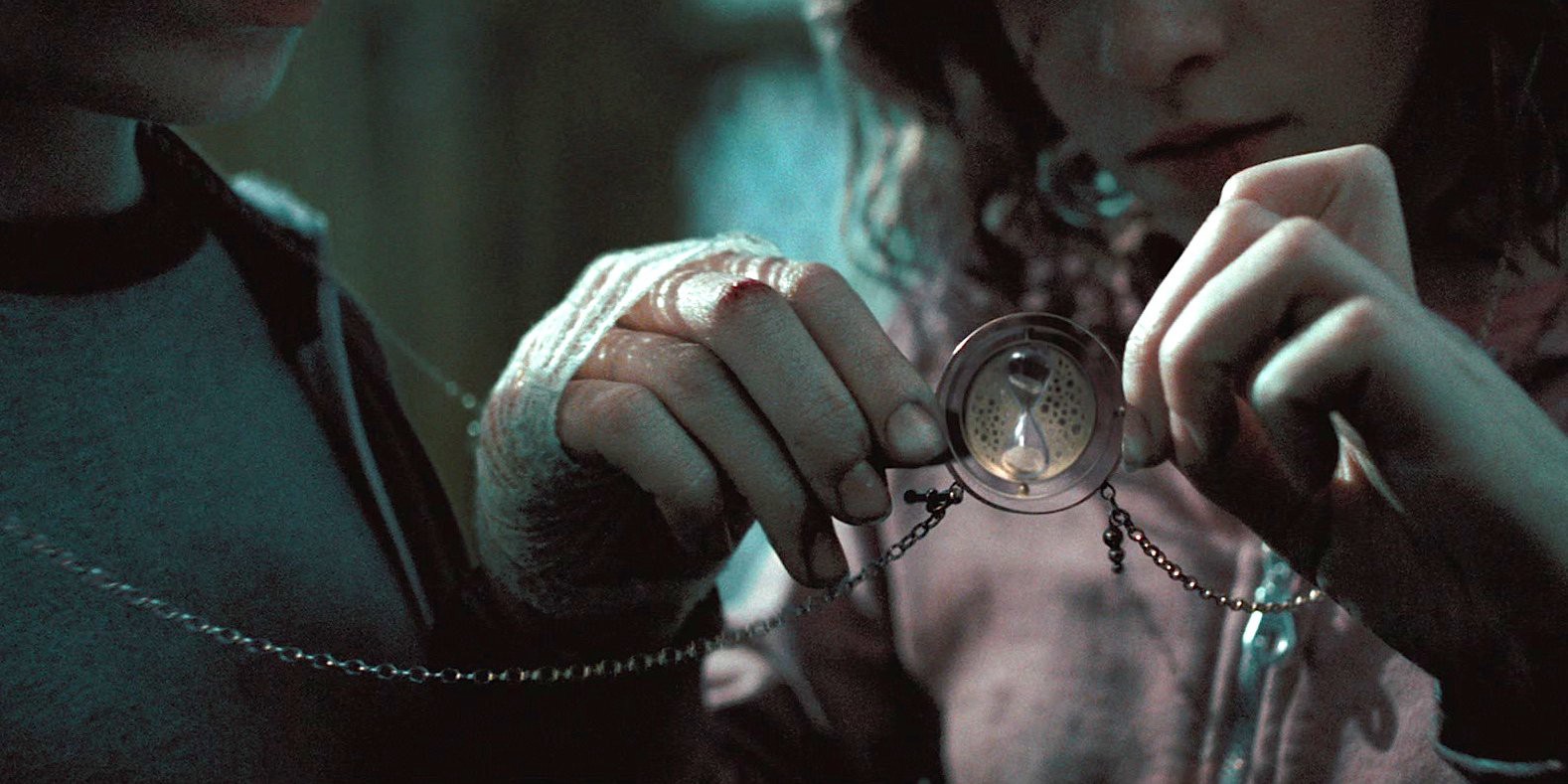
Or the basics of breaking down Novikov?s Consistency Principle.
The third Harry Potter film is one of the best composed in the series. From the broadening of themes to the exploration of Harry?s heritage, Azkaban was a step in the right direction for the series.
During this conceptual growth, Rowling reached for a fresh idea. It?s the first book to feature time-travel. I?m not the world?s biggest harry Potter fan, but I always found the time turner an interesting challenge, particularly given the lack of success most writers have when working with time travel. It creates polarising views on the harry potter lore, and it?s a part of the magic Rowling never seems to nail down.
For this video, I?m just going to look at the lore in the original books, discounting the cursed child. We?re also talking about the movie time turner, which actually makes more sense than the book time turner.

The time turner introduces closed loops. It operates on the premise that the universe will always try and revert to the way it was before.
Hermione explains she needs to return to the time and place the turner was used to avoid serious consequences
By returning to the spot and time where the time turner was used, Hermione closes the loop: to everyone else, nothing has changed.
The basic idea is that you don?t accidentally bump into your past self and kill them, change their actions or shift their perception of events.
This is where we hit paradox territory and things get messy.
Interrupting the existing timeline in a way that prevents you from travelling back in time creates a paradox.
As an example, let?s pretend Dumbledore gives Hermione the time turner at 5pm on a Tuesday. She walks from the room, hides in a closest and turns back the time turner one.
Hermione intercepts her past self and renders her petrified with a neat spell. Now Hermione never receives the time turner, but she can?t have not received the time turner because she used the time turner to stop herself from receiving the time turner.
Like I said, messy.
Hermione notes wizards who meddle in time travel go insane ? so in this universe, let?s assume that creating a paradox causes you to lose your mind or experience the two memories at once problem from Bioshock.
The time turner works on Novikov?s self-consistency principle.
The principle suggests that one timeline exists, and that a time traveller cannot change the past, but can affect events in a way that creates no inconsistency.
Let?s take a small example. Hermione sleeps for seven hours, wakes up and hides under her bed. She turns the time turner once. She slips out from under the bed while past Hermione sleeps and has a quick nap in the garden, making sure she?s back under the bed as her past self turns the time turner.
In this way, Hermione has made sure the timeline remains intact.
In other words, Harry and Hermione ALWAYS travel back in time to free Sirius because by the time Malfoy is punched, they already have travelled back in time.
This means time-turners have a limited use in the grand scheme of the magical world.
There?s no going back to slay You Know Who or preventing the rise of Gellert Grindlewald because you would have ALWAYS gone back to do so.
Any real use of the time turner would need to be mundane or already written in history, like Sirius? escape from prison or our previous example of having an extra nap.
Hermione points out that seeing one?s past self can send you mad ? this is the consequence of breaking the closed loop and creating a paradox. Because the time-turner adheres to Novkiov?s consistency principle, even if you travelled and created an alternate timeline, you wouldn?t know because it would be the world you?ve always lived in ? this is where Novikov?s principle falls apart, so let?s pretend you CAN?T create a paradox.
This means the time turner is basically useless in changing world events, unless they were always going to be changed.
It would have some uses if you were discreet and followed the rules
The best use for this would be to get more work done in a day.
Let?s assume I?m at the office from 9am until 5pm. I spent my eight hours at my day job, then I come home and roll under my bed. I crank the time turner back eight times and wait for my past self to leave the house.
Then, theoretically, I?ve doubled the amount of time I have to be productive for that day
This has its issues: I?d be twice as tired, need twice as much sleep, and most importantly, I?d age twice as fast.
The aging problem is the biggest concern.
Even though the largest amount of time a wizard can travel back without harm is five hours, if Hermione is adding five hours to her life every few days, she?s going to start aging fast enough for people to notice.
Mechanically, the time turner is actually okay. It?s not world-breaking necessarily, but is problematic and begs the question:
Why did Dumbledore give the time turner to a teenager just to attend class?
As far as I can tell, Dumbledore knew that Hermione couldn?t create a world-ending disaster because she would have already done it?
Which is still irresponsible, but I understand dumbledore?s logic. He isn?t stupid.
The problem with the time turner becomes one of genre
The first two harry potter books are written in the fairytale genre convention ? things happen, they make sense, and we accept them.
The time turner is the first time we start to the see the edges of Rowling?s world, and it becomes the largest problem of the series as it progresses. Rowling spends a lot of time reexplaining and recontextualising existing information to fix where she placed the walls of the world in the first place
This shouldn?t detract from Harry Potter
It?s still one of the greatest fairytales ever told. Rowling produced the best story she could with the tools she had and it is a world-wide success for a reason.
The time turner is part of a systemic problem in Harry Potter. Some of my favourite stories have their problems, but that doesn?t take away from their value. It doesn?t harm what makes them enduring.
So, next time someone scoffs at the story you love because of one element that doesn?t quite gel, just remember, you can love a story despite its flaws.


